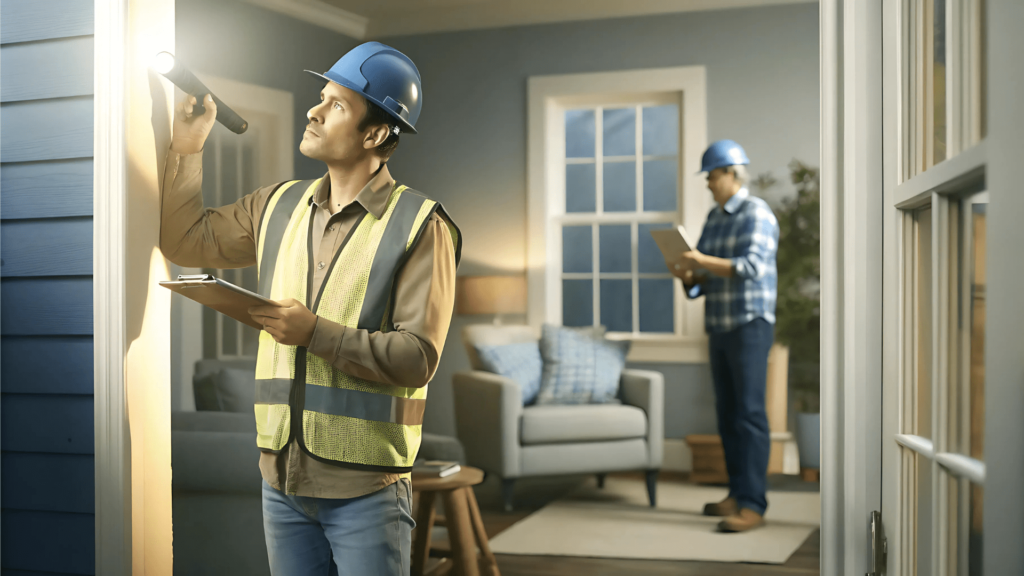
When buying or selling a home in Florida, a professional home inspection is a crucial step in ensuring the property is in good condition and free from hidden issues. Home inspections provide valuable insights that can influence negotiations and protect your investment. This guide will explore the essential home inspection services available in Florida, what they typically cover, and the associated costs, helping you navigate this important part of the home-buying or selling process. Whether you’re a first-time homebuyer or a seasoned investor, understanding the ins and outs of Florida home inspection will help you make informed decisions.
Table of Contents
ToggleStandard vs. Additional Home Inspections
When it comes to buying a home, one of the most important steps is the home inspection. However, it’s important to understand that not all home inspections are created equal. While a standard home inspection provides a general overview of the property’s condition, additional inspections might be necessary to dig deeper into specific concerns.
1. Standard Home Inspection
A standard home inspection is the most common type and typically covers the main structural and functional aspects of a home. This includes the foundation, roof, electrical systems, plumbing, HVAC, and more. The goal is to identify any obvious issues that might affect the property’s livability or safety. The inspector will provide a detailed report, which can help you decide whether to move forward with the purchase or ask the seller for repairs or concessions.
2. Additional Home Inspections
While a standard inspection is comprehensive, there are cases where you may need additional inspections to address specific concerns. Here are a few common ones:
- Pest Inspection: In Florida, where termites and other pests are common, a pest inspection is often recommended. This inspection focuses on detecting signs of infestations and structural damage caused by pests.
- Mold Inspection: If the home has signs of water damage or humidity issues, a mold inspection is crucial. Mold can pose health risks, and catching it early can save you from costly remediation down the line.
- Radon Testing: Although not as common in Florida, radon testing might still be recommended depending on the area. Radon is an odorless, colorless gas that can be harmful to your health over time.
- Septic System Inspection: If the property is on a septic system rather than city sewer, a septic inspection is important to ensure the system is functioning properly and will not lead to costly repairs.
- Pool Inspection: In Florida, many homes have pools. A pool inspection will check the condition of the pool’s structure, equipment, and safety features.
3. Which Inspections Do You Need?
The choice between standard and additional inspections depends on the home and your specific concerns. If you’re buying an older home, or one in a location prone to pests or mold, additional inspections may provide peace of mind. It’s always a good idea to work closely with your real estate agent and home inspector to determine which inspections are essential for your situation.
Essential Additional Inspections
When buying a home in Florida, additional inspections can provide important insights into the property’s condition. A Mold Inspection and Testing (costing $300-$800) checks for harmful mold, which thrives in Florida’s humidity, with air quality tests and surface samples. A Termite/WDO (Wood Destroying Organism) Inspection (costing $75-$150) is essential to detect termite damage, which is common in the state, and is often required by lenders. Finally, a Pool/Spa Evaluation (costing $150-$300) ensures the pool or spa’s equipment, structure, and safety features are in good condition, along with testing the water’s chemical balance. These inspections may seem like extra steps, but they help avoid costly surprises and protect your health and investment in the long run.
Specialized Inspection Services
Specialized inspection services, like wind mitigation, four-point, and radon testing, help ensure your home is safe, efficient, and may lower insurance costs. These inspections check key systems, identify potential risks, and can provide savings or discounts.
1 Wind Mitigation Inspection
- Cost: $75-$150
- Potential Savings: You could save up to 30% on your home insurance.
- Key Benefits: This inspection looks for features that make your home more resistant to hurricane winds (like reinforced roofs or windows). Insurance companies may offer discounts for these features. The results of this inspection are good for 5 years.
2. Four-Point Inspection
Cost: $100-$200
What it Examines: This inspection checks four key systems in your home:
- HVAC (heating, ventilation, and air conditioning)
- Electrical system
- Plumbing
- Roofing
Note: It’s often needed for homes that are over 30 years old, as older homes may have more wear and tear.
3. Radon Testing
- Cost: $150-$300
- Duration: The test takes at least 48 hours.
- Importance: Radon is a gas that can be harmful if it’s trapped in your home. Florida’s limestone can create higher levels of radon, so it’s important to test for it to keep your family safe.
Cost Breakdown and ROI
1. Investment Range
Basic Package
- Cost: $475–$800
- Benefit: Can save you up to $500 per year on your home insurance premiums.
Comprehensive Package
- Cost: $1,000–$1,800
- Benefit: By spotting problems early, you could avoid spending over $10,000 on major repairs later.
2. ROI Considerations
These packages provide value beyond the upfront cost by potentially lowering insurance premiums through improved home conditions, offering leverage to negotiate repairs if issues are found, preventing expensive fixes by catching problems early, and providing peace of mind by ensuring your home is in good shape and your investment is secure.
Choosing the Right Services
Choosing the right services means finding the best solution to fit your needs. Start by understanding what you want to achieve, then compare different providers based on their offerings, reviews, pricing, and expertise. Focus on value—quality matters as much as cost. Ask questions to clarify their experience, process, or guarantees, and choose a provider you feel confident and comfortable working with. Taking these steps ensures you make an informed decision that meets your goals.
Tips for Maximum Value
To get the most out of your inspections, try these tips:
- Bundle services: Combine multiple inspections (like home and pest inspections) to save money.
- Choose the right timing: Schedule inspections during dry weather for clearer results, especially for roof or foundation checks.
- Ask for sample reports: Review examples of their work to understand the detail and quality they provide.
- Be present: Attend the inspection if you can to ask questions and get insights directly from the inspector.
Bottom Line
Home Inspection Services are a vital step in Florida’s real estate process, helping to uncover potential issues and protect your investment. Standard inspections provide a broad overview, while additional and specialized services address specific risks like mold, pests, or hurricane damage. By selecting the right combination of inspections, you can negotiate confidently, avoid costly surprises, and ensure your home is safe and sound. Investing in thorough inspections is a smart way to secure peace of mind and safeguard your long-term investment.
- Over 7 million students
